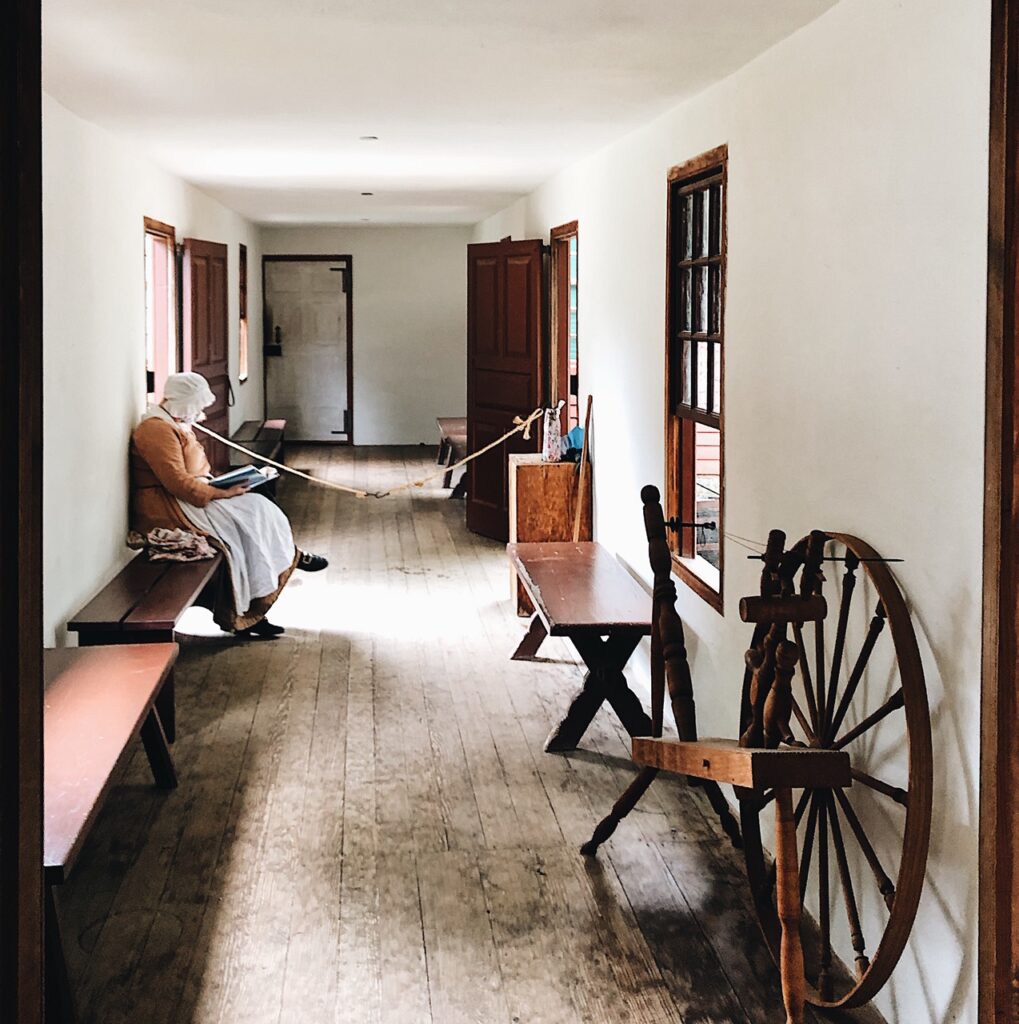
I first meet Betty on September 25, 2020.
Betty lived in 1774.
Betty just has a first name, like the five, sweet-eyelashed dairy cows who shared the courtyard with her and would be willed down along with Betty to the next owner in line. On the list of property for the Peyton Randolph estate, Betty’s line item shows she cost 100 pounds.
But that’s not the part of Betty’s story I want to tell first.
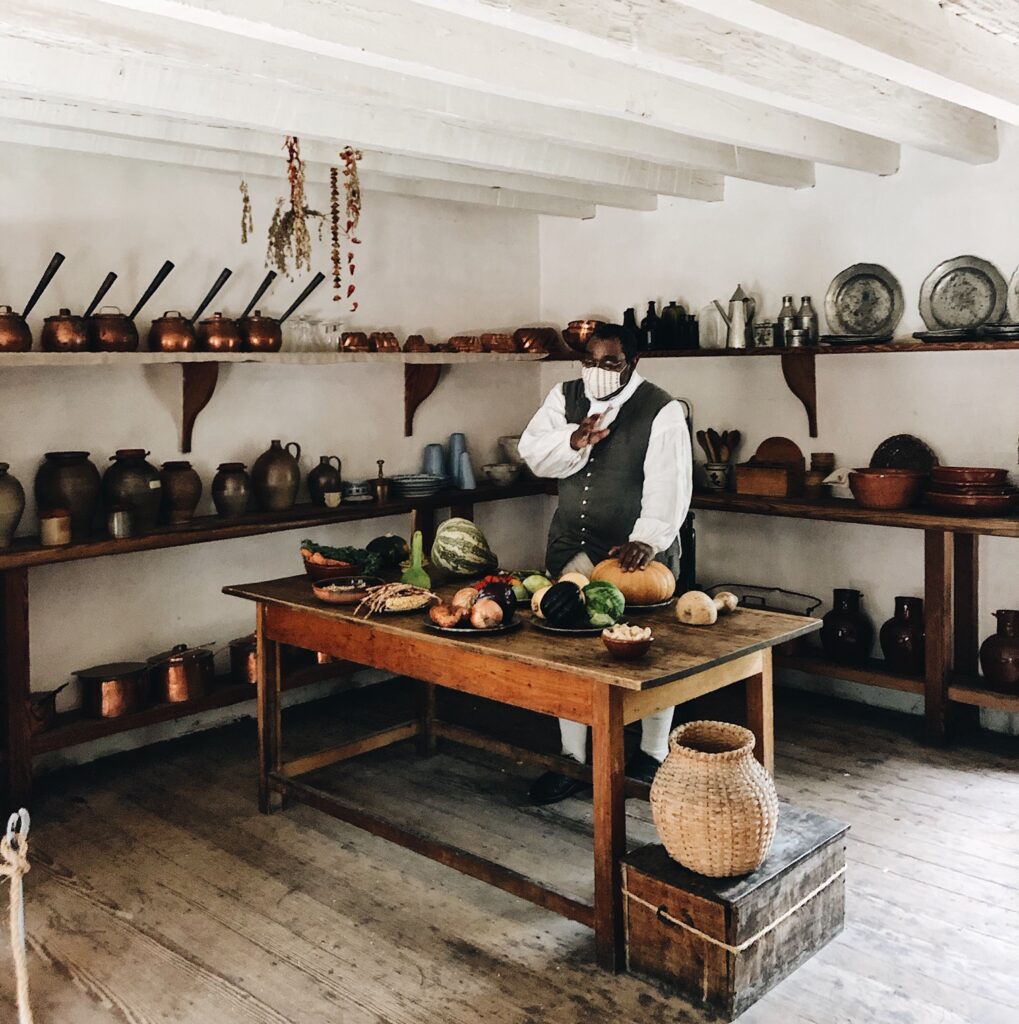
I learn her story from a man whose shade of skin conjures Betty’s own. The backs of his hands are as dark as the imaginary charcoal ashes he gestures toward in the Peyton Randolph House kitchen in Colonial Williamsburg, VA. His palms, as he operates the spit in the fireplace, mirror the shade of butternut squash resting on the table behind him.
This man, in 2020, tells me Betty’s story from 1774, but I don’t catch his first name as he introduces himself. He launches into his docent duties, curating the details of Betty’s life, holding up shards to be examined like pottery from a museum collection.
Betty dreams up menus for multi-course dinners. She reads the seasons, particularly thrilled when pumpkins ripen and split into a superabundance of culinary options. She gathers her produce. Measures her flour. Sprinkles more salt. Reduces stress by hacking a particularly hard-nosed butternut squash in half. Glares at the pile of black-eyed peas waiting to be shelled.
Acorn squash. Peanuts. Peppers. Kale. Pumpkin. Onion. They are all hers for the concocting.
George Washington will be dining on her food tonight.
Thomas Jefferson will be joining the party tomorrow.
Betty considers swapping the cake she had planned for a cobbler.
She nudges redder coals under the coffee pot on the hearth with her toe. Definitely decides on the cake.
Betty is not one to forget the other 27 first-name-only people laboring in the courtyard buildings. Tonight, they’ll fend for themselves for supper. All her concentration goes into the magic potion that will wow George Washington’s and Thomas Jefferson’s tastebuds watering the table in Peyton Randolph’s dining room. Betty is a softie at heart. Even as she mentally grants 27-first-namers freedom to eat leftovers while she attends to the porcelain-laden dining table, watch her carefully, because she still jostles space in the back corner of her massive fireplace for a skillet of cornbread to liven up the laborers’ meal.
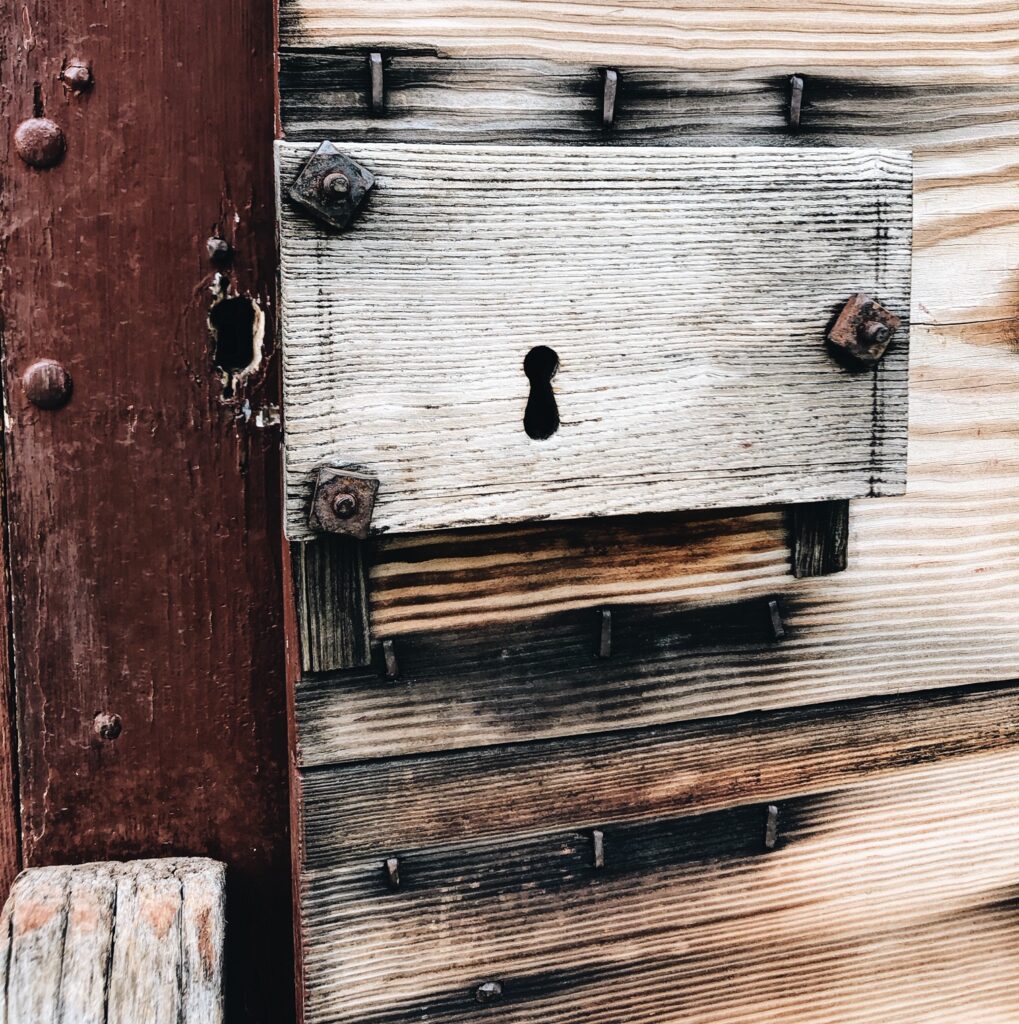
Betty can read and write, and this is not unusual in 1774, but it will be in later years. Like all accomplished chefs, Betty has no need to read her recipes; her nose and fingertips tingle when the butter has browned just so. But she can read, and so she does read, and she reads in 1776 that a certain group of people will grant her freedom in exchange for her serving them not with a ladle but a musket. The British vow to grant Betty freedom if she willingly take up arms in the fight to tamp down the Colonial brats.
I can see Betty taste-testing her famous butternut squash soup one last time before it’s carried out to the illustrious mouth of George Washington. I can also see Betty taste-testing freedom. I only know Betty’s first name, so forgive me for speculating the details of this part of her story. Given her culinary talent, she could have commandeered the soup pot in the British camp kitchen. Given her grit, she could have stared down the barrel of a musket and spotted freedom through the sight on the end. Did Betty look down that long musket line, across a battlefield, and into the eyes of a man who had potential to be her next owner if she missed this shot?
People with my color of skin, the shade of the onion on Betty’s kitchen table, call a certain day in July Independence Day. But how could Betty, with skin the color of an eye on a pea, call it that?
If we chefs sprinkle a little bit of love on every plate that leaves our kitchens destined for the dining room, I wonder if the quality of Betty’s dishes might have suffered after Independence Day? She taste-tested freedom and was instead served leftovers. Post-1776, Betty goes back to the kitchen to serve two people in the main house, and, with whatever time and energy she has remaining in a day, 27 other people trapped in a courtyard with five dairy cows. Betty returns from war to be documented, first-name only, in a will that gifts her as property to Peyton Randolph’s lucky descendant.
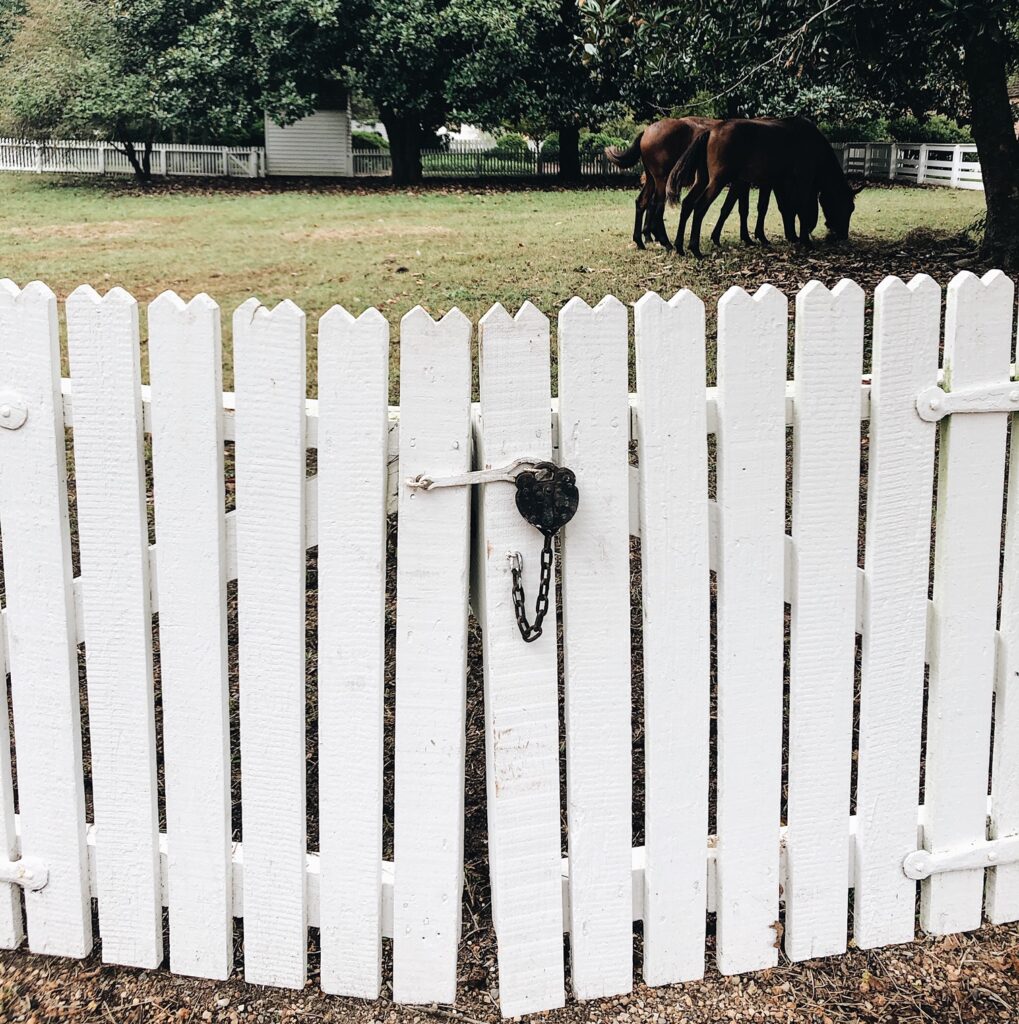
Everyone in this story has two names.
Except for Betty.
And my Tour Guide from Colonial Williamsburg in 2020. He has zero names.
I’ve imagined Betty, who captures my heart because I recognize a chef, leader, servant, and woman of worth when I meet one, but I haven’t treated her fellow human with the respect she deserved in history or he deserves in this story from 2020.
I walk into his kitchen domain where he knows the names of every kitchen implement and the history of every floorboard, but I come to take that knowledge, experience, and expertise from him. I take his gift and turn it into this story of Betty that serves me. I do not give him anything in return, not even the respect of listening carefully and remembering when he tells me his name in the beginning of his docent speech. He’s paid for his work performed on September 25, 2020, and that, at least, is an upgrade from Betty’s story in 1774.
But the currency of human respect that I show him still leaves me in his debt. I meet zero-names Tour Guide and one-name Betty in 2020. I don’t catch his name when he tells me Betty’s story. But I will do better. If history repeats itself, it better be a purposeful repeat, because I need to listen harder next time.

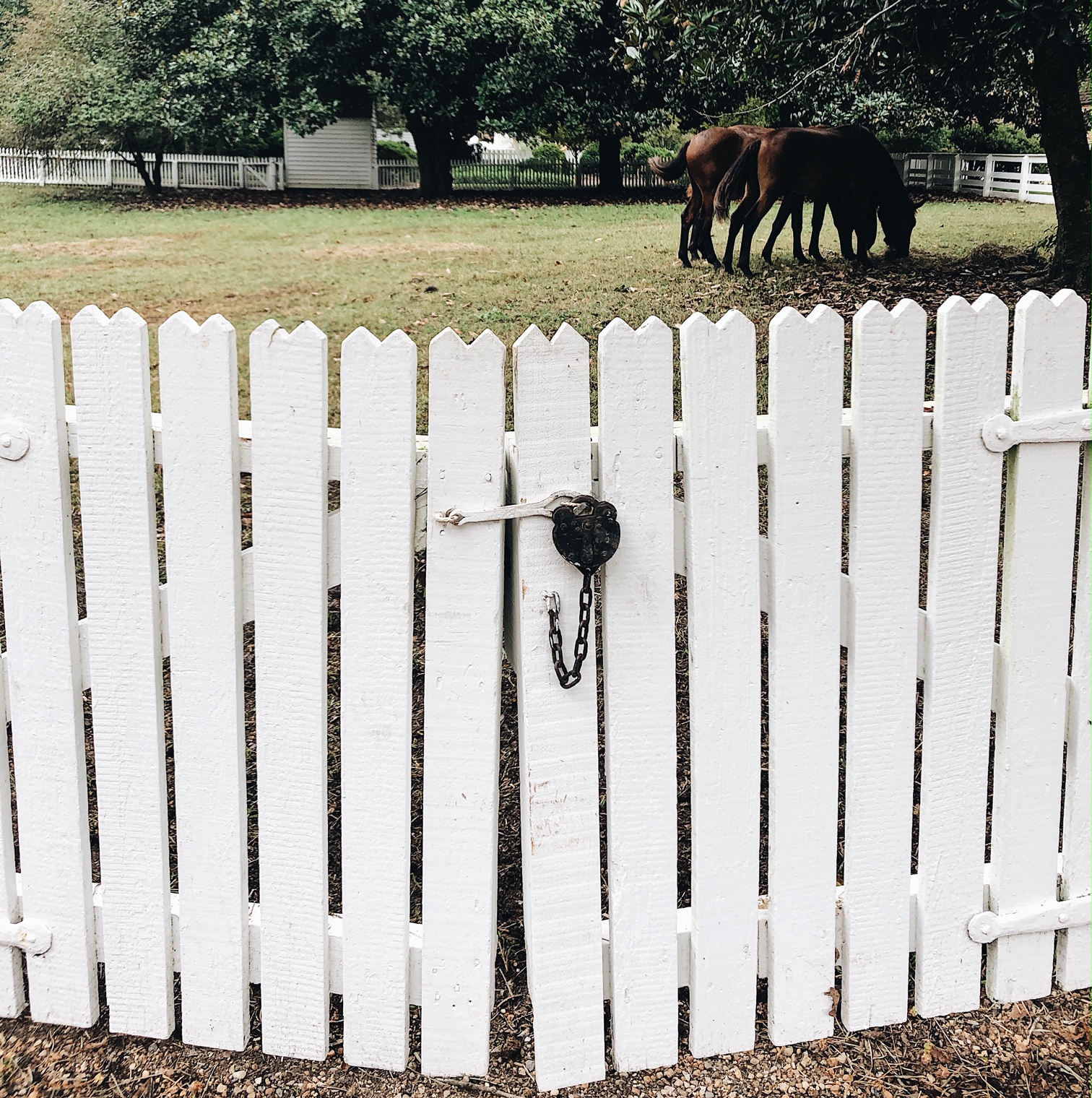
Words of conviction all of us “onions” need to hear to use as building blocks to “Be the Bridge”.